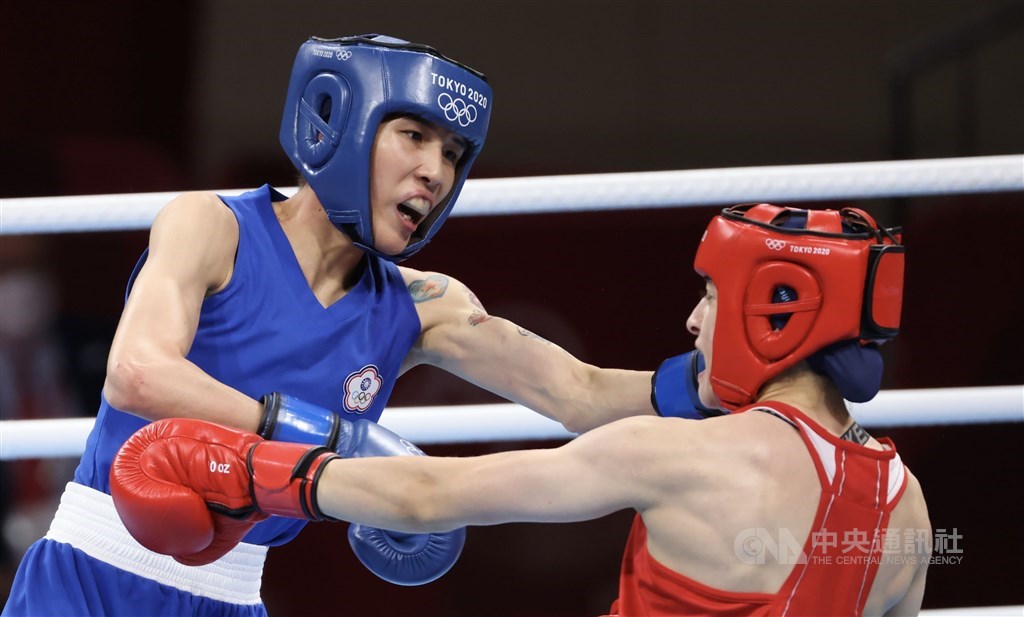
[ad_1]
Taipei, Aug 5 (CNA) Although every athlete’s path to the Olympics is long and full of sacrifice, it’s hard not to feel that Taiwanese flyweight boxer Huang Hsiao-wen (黃ç±é›¯) has come a mile longer. far than the others.
The 23-year-old, born into a troubled home environment in Taipei, ended the trip by winning a bronze medal on Wednesday, the first for Taiwan in an Olympic boxing event.
One of four boxers in the Taiwanese delegation to Tokyo, Huang generated considerable buzz, winning 5-0 decisions over Italy’s Giordanna Sorrentino and Serbian Nina Radanovic in her second round and quarter-final matches.
With a ticket to the semi-finals, Huang secured himself a medal – since 1970, the International Olympic Committee has awarded bronze medals to the two losing boxing semi-finalists, rather than having them compete for the third.
However, she was also the underdog in her high profile fight against Turkey’s Buse Naz Cakiroglu, the current world number 2.
Throughout his impressive run this week, Huang’s media coverage has drawn attention to his fascinating personal history, often trying to glean glimpses of the tattoo gallery – ranging from a Taiwan map outline to popular cartoon characters – which decorate his left biceps.
In interviews, however, Huang spoke about the importance of a tattoo on her chest containing words of encouragement from her father: “Boxer girl, remember why you started.”
The beginnings of Hardscrabble
There was little in Huang’s early years to suggest she would one day take the plunge, let alone reach the competitive pinnacle of a niche sport like women’s boxing.
One year after his birth in 1997, Huang’s parents divorced, and soon after, his father was sentenced to prison for the first time in three for drug-related offenses. Huang was sent to live with her grandparents, where she was often left alone for hours while her grandfather drove a taxi to support the family.
As she got older, she struggled in school, prompting warnings from parents that she was about to become “a bum like (her) father”.
Entering Taipei’s Lan-Zhou High School at the age of 13, Huang recalls, her main ambition was to become a professional basketball player.
When plans to field a team failed, school boxing coach Liu Tsung-tai (劉宗泰) – who would become her coach and a “second father figure” – urged her to try boxing .
From there, Huang never looked back. Having cut her teeth in a series of youth competitions, she won a bronze medal at the 2018 Asian Games and a gold medal at the 2019 AIBA Women’s World Boxing Championships, eventually securing a berth at the Games. Olympic.
Sports, Huang said, gave him confidence and taught him that “although I cannot change the circumstances in which I was born, what I can change is my own destiny.”
Bronze medal
In her Olympic semi-final fight against Cakiroglu on Wednesday, Huang stumbled from start to finish, losing the first round to the Turkish fighter on the five judges’ scorecards.
Her form improved slightly in the second round, which she lost by a narrow 3-2 score, but she lost the third in another 5-0 decision to close the game.
After the fight, Huang expressed disappointment with her performance, telling reporters that she was nervous and could have done better.
Although she lost, she said, she felt “extremely honored” to have brought glory to Taiwan by winning the country’s first ever Olympic boxing medal.
Noting the recent media coverage of her family’s past, Huang said she also wanted to send a message to her father.
“I want to tell him, no matter what he has done in the past, that he will always be my pillar of strength. I am proud of him and I hope he is proud of me too,” he said. she declared.
[ad_2]